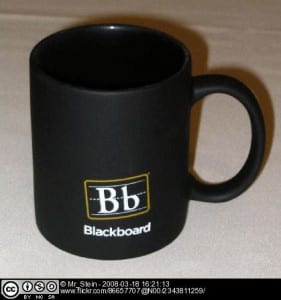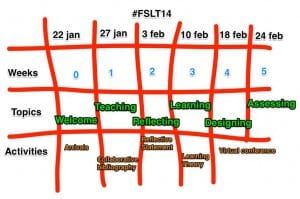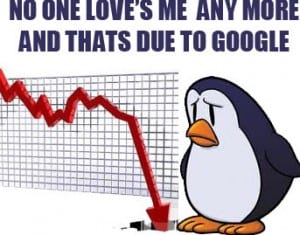I was in a Blackboard session this week. The plan to show case good practice, to be inspiring, supportive, but the plan failed. Examples of innovation were overshadowed by negative comments about the technology. At great speed the focus turned from positive enhancement to lets knock Blackboard. It spread like a virus. The potential affordances for learning were unable to break through the Blackboard attack.
Maybe I should have expected it. Lulled with TELEDA and the FSLT MOOC at Oxford Brookes, my immersion in the advantages of VLE have imbued a false sense of security. I worry my ‘I love Blackboard’ campaign will be equally infected. I’d forgotten the extent to which Blackboard is unpopular.
No one likes it. I feel like a lone champion in a world of resentment and frustration. I can quote the negatives; unattractive, clunky, boring, confusing, difficult and students prefer Facebook. I can count the positives on one hand with fingers to spare. Er, um, well, maybe not even that many…
Discussing this with colleagues it was suggested Blackboard is an easy target. It can’t answer back or defend itself so is a useful scapegoat for wider dissatisfactions, not just about the role of technology in higher education but also life, love and the universe. Sounds possible. Surveys and focus groups tell us students would prefer more consistency across modules but they like rather than dislike their VLE. The anti-Blackboard movement is staff led. I have to ask myself apart from the politics, the rage against the machine and anti-automation movements, what is it about Blackboard which causes hostility and can any of it be changed? Can we get beyond form to function?
I agree some things about Blackboard are a pain. I’m not immune to its failings. No matter how well you format a course or group email it arrives with odd spacing – this annoys me. It looks like I don’t know how to lay out text. There are still formatting issues with the Content Editor. The notifications don’t pick up new activity in groups. You have to grade a wiki to get notified of new content and this can’t be applied retrospectively. The blog tool is dull. So is the reflective journal. Forums aren’t great for large numbers of participants and like most people I think Blackboard could do with a make-over. It doesn’t look as good as it could.
BUT…….
….the majority of UK HE institutions have teams of people managing the Blackboard experience for staff and students. We don’t. This is changing but it will take time to reverse the damage. We have to focus on what matters – the student and staff experience, one which takes the affordances of internet connectivity and utilises them for off campus access to teaching and learning experiences. Like not judging a book by its cover, we need to move beyond the appearance to what it does. An ugly pen still writes. Blackboard is accessed by thousands of people every day (including Christmas) and keeping it running takes priority. Once more resource is available we’ll be able to test and pilot tools like Mobile and Collaborate. Maybe reinstate themes so individual appearance can be customised. Explore templates. Enhance the DIY model with central support for content creation. Revisit the social media tools. Promote discovery through case studies and lunch time drop-in sessions. Increase online help and support. And listen to what everyone has to say. I’m happy to hear about all the things which are wrong with Blackboard but let’s make it a two-way communication. It’s not all bad. The future is virtual and one of its names is Blackboard.














